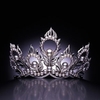Not Sure About the Answer?
Find an answer to your question 👍 “Where does the power lies within representative democracy? ...” in 📗 Social Studies if the answers seem to be not correct or there’s no answer. Try a smart search to find answers to similar questions.
Search for Other Answers
You Might be Interested in
In the 1700s, colonists increasingly responded to the restrictions placed on their economies by. A) More commonly adhering to and adopting mercantilist policies B) Gradually resisting imperial control by establishing more autonomous governments C)
Answers (1)
Why did the Sons of Liberty organize the Boston Tea Party? How did the British react to the Boston Tea Party?
Answers (1)
Events that changes relationship between federal and state government?
Answers (1)
Beth is working on a research study focused on attention span in children. among the participants, the group of 11-year-old boys is underrepresented.
Answers (1)
Which type of truth standard holds that a belief, feeling, or behavior is acceptable if it promotes the greatest good for humanity as a whole rather than for the individual?
Answers (1)
New Questions in Social Studies
Why was john brown executed
Answers (1)
Short description about Nepal
Answers (1)
At least once each year, list the career goals you achieved and celebrate it. true false
Answers (1)
What was the name if the law in which the government gave a 160-acre farm to anyone willing to work on and improve the land? A. Homestead Act B. Land Act C. Western Expansion Act D. Settler Act
Answers (1)
Select all that apply. Identify features of warfare that were characteristic of Afro-Eurasian societies. advanced tactics battles waged with small armies and navies advanced weapons wars fought with cavalry
Answers (1)

